| Home > Policy > White Paper, Notice, Announcement > White Paper > JAPANESE GOVERNMENT POLICIES IN EDUCATION, SCIENCE, SPORTS AND CULTURE 1996 > Priorities and Prospects for a Lifelong Learning Society Chapter 2 Section 1 10 | ||
The type of learning ability needed in a lifelong learning society can be characterized as the qualities and skills that enable people to respond to new problems that arise in work or daily life by identifying the issues involved, thinking about them, and finding solutions through their own efforts. In childhood and adolescence this ability is acquired through a combination of structured learning activities in school, interaction with parents, and various experience and activities in the community, such as play with friends and interaction with other people. There is a tendency today to emphasize school education, however, with the result that children do not have sufficient opportunities to develop learning skills through a variety of out-of-school activities.
Participants in a survey commissioned by MESSC in fiscal 1995 were asked to state their opinions of the statement "Recently there has been a decline in the educational function of the family and community." The results show that 32.8% of respondents agreed with this view and 27.2% agreed somewhat ( Figure 2.31 ). In addition, 34.1% agreed and 27.1% agreed somewhat with the statement "Manners and discipline, which should be taught in the family and community, are now being taught in schools."
In 1993 the Prime Minister's Office conducted the "Opinion Survey Concerning Youth and the Family." When respondents were asked for their opinions of the statement "Children today have too little hands-on experience of life and nature," 30.1% agreed and 37.6% agreed somewhat ( Figure 2.32 ).
In 1994 MESSC commissioned an opinion survey on school education and the five-day school week. The results show that 39.8% of parents and guardians and 63.0% of teachers thought that children today have too little free time to gain a varied experience of family and community life ( Figure 2.33 ).
Many children attend private classes and juku after school and at other times. According to the MESSC fiscal 1993 "Survey on Juku and Related Matters," 76.9% of elementary school children and 28.3% of lower secondary school students attended private classes. The figures for juku attendance were 23.6% at the elementary school level and 59.5% at the lower secondary school level ( Figure 2.34 ).
Moreover, while elementary school pupils and lower secondary school students themselves had a positive view of juku attendance, 60.6% of parents and guardians believed that the use of juku was "excessive." Among the problems cited was "inadequate experience of life and activities, including play, community activities, and family interaction," which was selected by 51.5% of respondents ( Figure 2.35 ).
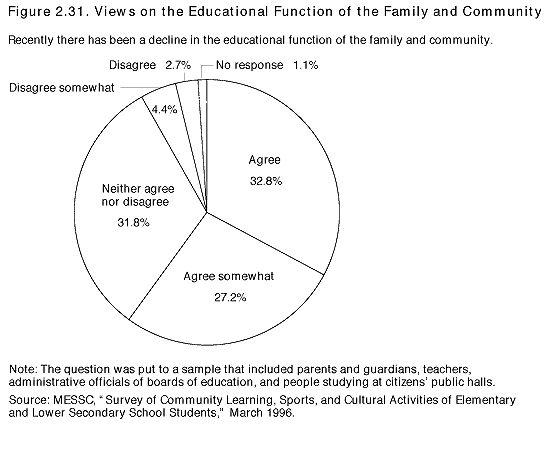
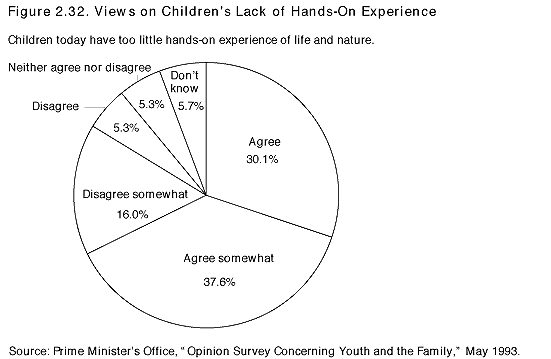
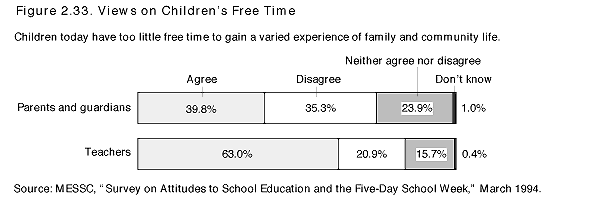

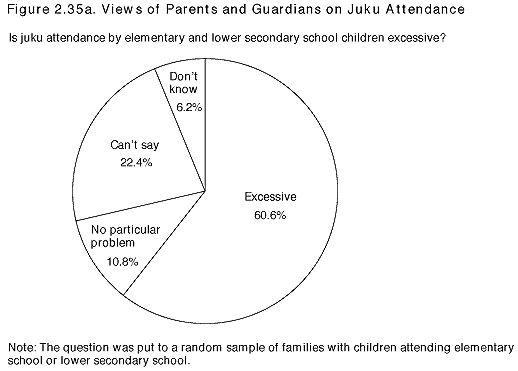
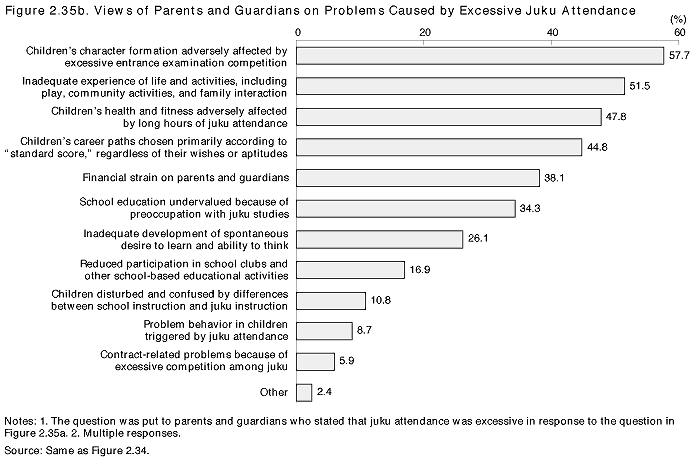
| Back to Top | MEXT HOME |